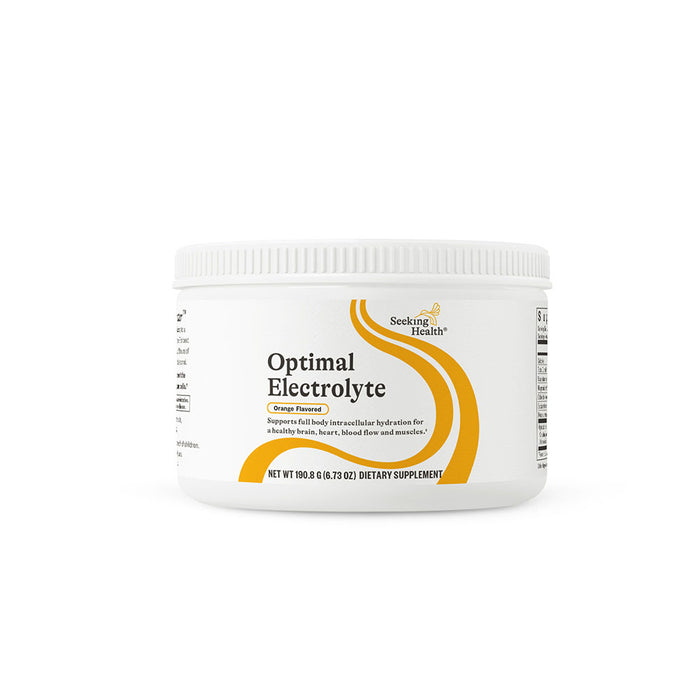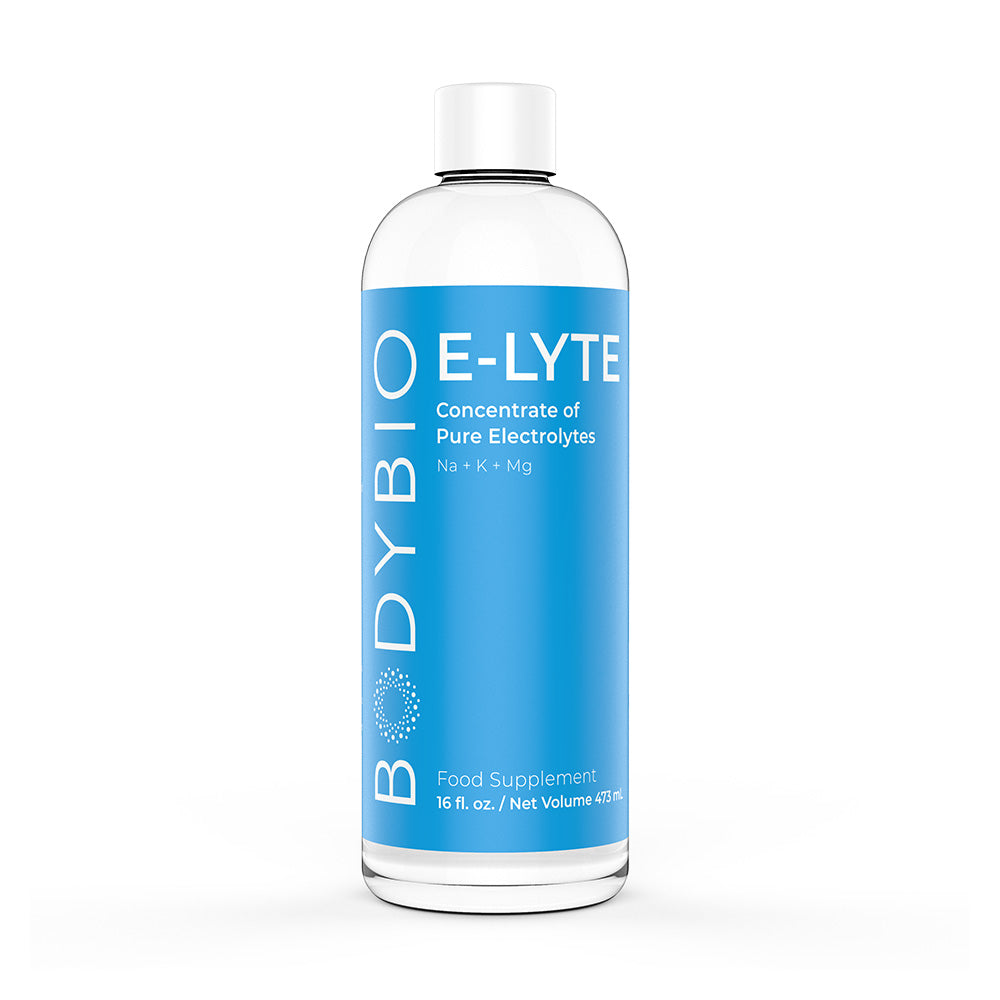What are Electrolytes?
Electrolytes are essential minerals in your body that carry an electrical charge, helping regulate various physiological functions. The main electrolytes include sodium, potassium, calcium, magnesium, chloride, phosphate, and bicarbonate. They play a crucial role in hydration, muscle function, nerve signaling, and maintaining pH balance.
Why Are Electrolytes Important?
Electrolytes help your body stay hydrated by balancing fluid levels inside and outside cells. They also support muscle contractions, prevent cramps, and aid in nerve function. Without sufficient electrolytes, your body may experience fatigue, weakness, irregular heartbeat, and dehydration.
Electrolytes are commonly used as a running supplement to help maintain hydration, muscle function, and endurance during exercise. When you sweat, your body loses essential minerals like sodium, potassium, calcium, and magnesium, which are crucial for fluid balance and muscle contractions.
Do Runners Need Electrolytes?
Similarly to how runners require protein to perform their best, they also benefit from electrolytes. When it comes to running performance, hydration is crucial—but water alone isn’t always enough. Electrolytes play a key role in keeping your body functioning optimally, especially during endurance exercise. Whether you're sprinting short distances or tackling a marathon, replenishing electrolytes can make all the difference in preventing fatigue, cramps, and dehydration. By replenishing electrolytes, runners can:
- Maintain fluid balance and hydration
- Prevent muscle cramping and fatigue
- Support energy production and endurance
- Improve recovery and reduce soreness
How Important Are Electrolytes for Different Distances?
The need for electrolytes varies depending on the length and intensity of your run:
Short-Distance Runs (Under 5K)
For short runs, water alone may be enough if you're running at a moderate pace. However, if it's hot and humid, even a brief workout can lead to excessive sweat loss, making electrolyte intake beneficial.
Mid-Distance Runs (10K to Half Marathon)
At this level, electrolyte intake becomes more important, especially if you’re training hard or racing. Many runners start using electrolyte-rich drinks or supplements to stay hydrated and maintain energy.
Long-Distance Runs (Marathon & Ultra Runs)
For endurance running, electrolyte replenishment is essential. Without proper intake, dehydration and imbalances can lead to serious symptoms like muscle spasms, dizziness, and even exhaustion. Runners often rely on electrolyte drinks, tablets, or gels to stay balanced throughout the race.
How to Replenish Electrolytes During a Run
Runners can restore electrolytes through various sources:
- Sports Drinks – Quick hydration with sodium and potassium
- Electrolyte Tablets – Easy to mix into water for customized intake
- Coconut Water – Natural source of potassium and magnesium
-
Salted Snacks – Pretzels or nuts provide sodium during long runs
|
Hydration Packs - 14 Stick Packs |
How do Electrolytes Work?
Electrolytes include sodium, potassium, calcium, magnesium, chloride, phosphate, and bicarbonate, and they all have electrical charges when dissolved in body fluids. These charged particles help transmit signals between cells, ensuring your muscles contract, nerves function, and fluids remain balanced.
How Electrolytes Regulate Hydration
Water alone isn't enough to keep your body hydrated—electrolytes help regulate how fluids move in and out of cells. Sodium and potassium, in particular, maintain the right balance by pulling water into cells or pushing it out when needed.
Electrolytes and Muscle Function
Ever experienced muscle cramps? That could be due to an electrolyte imbalance! Calcium, magnesium, and potassium are crucial for muscle contractions. If these minerals are depleted through sweat or exertion, muscles may cramp or fatigue more easily.
Nerve Signaling and Energy Production
Your nervous system relies on electrolytes to send messages throughout your body. Sodium and potassium work together in nerve cells to transmit electrical impulses, allowing muscles to react and your brain to process information. Without enough electrolytes, your reactions may slow down, and you might feel fatigued or dizzy.
Electrolyte Balance and pH Regulation
Electrolytes also help maintain your body's pH levels, ensuring your blood isn't too acidic or too alkaline. Bicarbonate plays a key role in keeping your internal environment stable, preventing metabolic issues.
How Do We Lose Electrolytes?
Electrolytes are lost through sweat, urine, and dehydration. Factors like intense exercise, high temperatures, illness, and poor diet can lead to deficiencies, making replenishment essential.
Best Electrolytes for Runners
Sodium – The Hydration Powerhouse
Sodium helps retain fluids and prevents dehydration, especially for long-distance runners. Without enough sodium, you may feel weak or dizzy during intense training. Best Sources:
- Sports drinks with sodium
- Electrolyte tablets
- Salted snacks (pretzels, nuts)
Potassium – Muscle & Nerve Support
Potassium helps prevent muscle cramps and supports nerve function. It’s especially vital for hot-weather runs when excessive sweating leads to potassium loss. Best Sources:
- Bananas
- Coconut water
- Leafy greens
Magnesium – Recovery & Endurance
Magnesium aids muscle relaxation and recovery, reducing soreness after long runs. It also helps with energy production and preventing fatigue.Best Sources:
- Nuts and seeds
- Dark chocolate
- Spinach
Calcium – Stronger Muscles & Bones
Calcium plays a key role in muscle contractions and bone strength, helping runners avoid injuries over time. Best Sources:
- Dairy products
- Almonds
- Fortified plant-based milk
Chloride – Fluid Balance & Digestion
Chloride works with sodium to regulate hydration and helps with digestion. It’s essential for fluid balance, particularly during long runs. Best Sources:
- Table salt
- Tomatoes
- Olives
How to Replenish Electrolytes on a Run
For optimal performance, runners can restore electrolytes with:
- Sports drinks for quick replenishment
- Electrolyte tablets mixed into water
- Natural sources like bananas or coconut water
- Energy gels with added minerals
|
Hydration Complex - 240g |
How Many Electrolytes are Recommended per Day?
The recommended intake of electrolytes depends on factors like activity level, climate, and diet, but there are general guidelines to keep in mind.
Daily Electrolyte Recommendations
Here’s an overview of the recommended daily intake for key electrolytes, based on general health guidelines:
| Electrolyte | Recommended Daily Intake |
| Sodium | 1,500–2,300 mg (for adults) |
| Potassium | 2,500–3,400 mg (for adults) |
| Calcium | 1,000–1,300 mg (for adults) |
| Magnesium | 310–420 mg (for adults) |
| Chloride | 2,300 mg (for adults) |
Factors That Influence Electrolyte Needs
Electrolyte needs vary based on different conditions:
- Athletes & Runners – Increased sweating requires higher sodium and potassium intake to stay hydrated and avoid cramps.
- Hot & Humid Climates – Sweating more often leads to greater electrolyte loss, making supplements beneficial.
- Diet Choices – If you eat a whole-food diet rich in fruits, vegetables, and dairy, you likely get enough electrolytes naturally.
-
Medical Conditions – Some health conditions require electrolyte management, such as kidney disease or high blood pressure.
|
Optimal Electrolyte (Orange Flavour) - 190.8g |
Should You Have Electrolytes Before or After Running?
The answer depends on the length and intensity of your workout, as well as individual hydration needs.
Electrolytes Before Running: Do You Need Them?
Taking electrolytes before a run can help prevent dehydration and muscle cramps, especially for long-distance running or in hot conditions. When pre-run electrolytes are beneficial;
- Running in high temperatures where excessive sweating is likely
- Long-distance runs (half-marathons, marathons, or ultra races)
- If you've been dehydrated or sweating heavily before your run
- Preparing for an intense speed or endurance workout.
Electrolytes After Running: Recovery Benefits
Taking electrolytes post-run is essential for muscle recovery, replenishing lost minerals, and preventing dehydration. After a tough workout, your body needs to restore balance to avoid fatigue, muscle soreness, and dizziness. When post-run electrolytes are essential;
- After a long-distance or high-intensity workout
- If you're experiencing cramps or weakness post-run
- Running in hot climates leading to excessive sweating
- Recovering for back-to-back training sessions.
For short runs, electrolytes may not be necessary beforehand but can aid in recovery afterward. However, for long-distance or intense workouts, taking electrolytes both before and after running ensures proper hydration, optimal performance, and faster recovery.
|
E-Lyte Balanced Electrolyte Concentrate - 473ml |
Final Thoughts
For runners, electrolyte balance is more than just hydration—it's a crucial factor in performance, endurance, and recovery. Whether you're running a quick 5K or pushing through a marathon, ensuring proper electrolyte intake from brands such as Designs For Sport, Seeking Health and Mother Earth Labs can help you perform at your best and stay injury-free.









